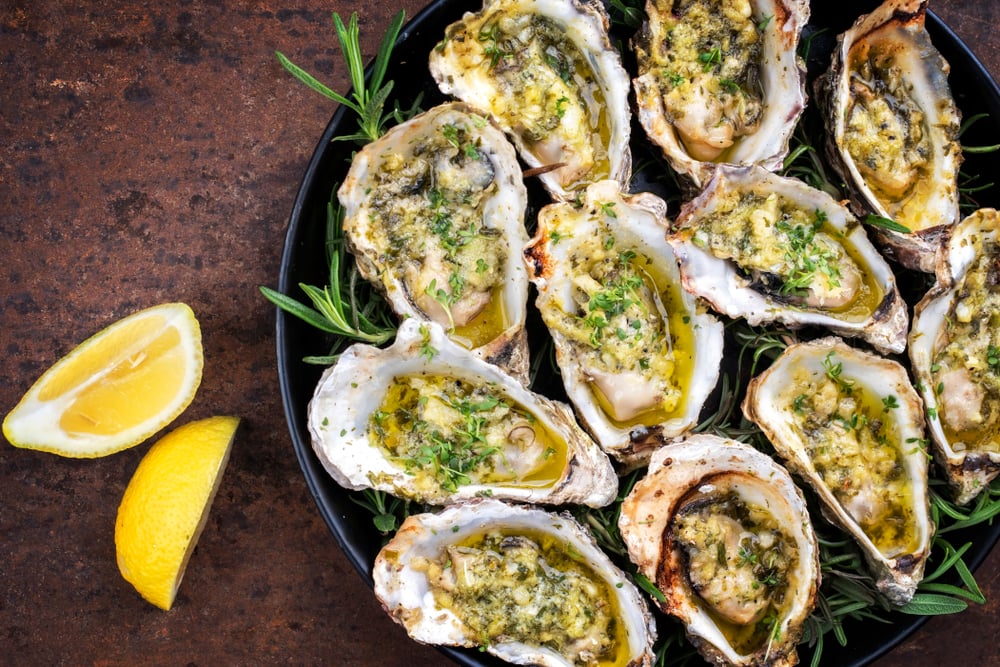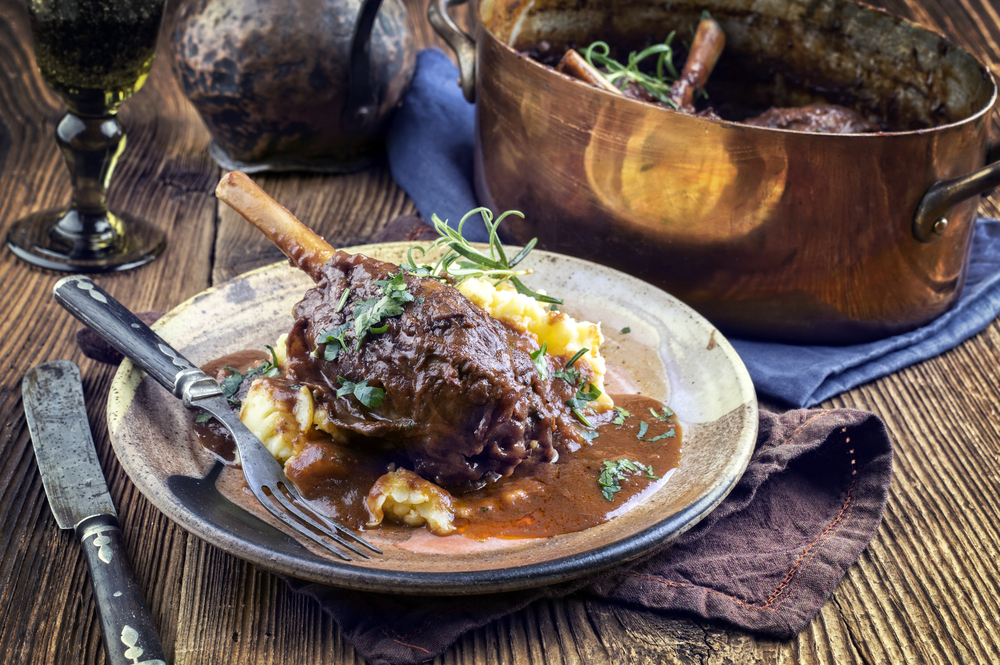Many factors contribute to good health, including exercising regularly, getting a good night’s rest, and practising good nutrition in terms of obtaining all of the essential nutrients — including vitamins and minerals — your body needs to function optimally.
One of the essential minerals is zinc. But what is zinc, why is it important for our health, what are the foods high in zinc and how much zinc do we need?
Zinc is a trace or “micro” mineral essential for our health, but unlike “macro” minerals, our bodies only need a small amount. It is found in cells throughout the human body, helping them grow and divide, and is necessary for the activity of DNA, proteins and enzymes. In fact, up to 300 enzymes are required to carry out vital chemical reactions. Zinc is mainly stored in the bone and muscle, however, our bodies can’t manufacture zinc, so it must be obtained from the food we eat.

Number one on the list of zinc rich foods is shellfish — in particular, oysters — but crab meat, lobster, mussels, and prawns can all adequately contribute to your daily zinc needs. Zinc is also plentiful in poultry and red meat, legumes, seeds, nuts, dairy foods, eggs and whole grains.
When looking at sources of zinc in food, it is always beneficial to look at the amount of zinc in milligrams per 100g, and then compare it to how much zinc you should be getting depending on your age and stage of life. Here are 16 foods high in zinc, as recommended by the Australian Government’s Department of Health website, Health Direct.
| Food | Milligrams of zinc per 100g |
| 1. Rock oysters | 20.25 |
| 2. Lamb shank | 10 |
| 3. Beef (steak) | 8.2 |
| 4. Pumpkin seeds | 7.5 |
| 5. Crab | 6.4 |
| 6. Cheese (tasty) | 3.55 |
| 7. Almonds | 3.5 |
| 8. Oats (rolled, uncooked) | 2.35 |
| 9. Lobster | 2 |
| 10. Muesli | 1.8 |
| 11. Chickpeas (canned) | 1 |
| 12. Chicken breast | 0.8 |
| 13. Yoghurt | 0.6 |
| 14. Baked beans | 0.5 |
| 15. Cashews | 0.5 |
| 16. Milk (regular) | 0.35 |
Most people will obtain sufficient amounts of zinc by eating a healthy, balanced diet. But the elderly, people with some gut conditions, people on some medications, and pregnant and breastfeeding women may need more. How much zinc you need can also depend on your age and stage of life. Below are the recommended daily intakes of zinc, by age, according to the NHMRC.
The assessment of requirements is based on the estimates of the minimal amount of absorbed zinc necessary to match the total daily excretion of endogenous zinc (zinc losses combined with pancreatic secretions etc.). Estimates are made via a calculation of both intestinal and non-intestinal losses (via the skin, kidney, menstruation and semen).
To determine the dietary zinc requirement for a specific age/gender group, they cite that “it is necessary to define the relationship between absorption and intestinal losses and adjust by a constant for the non-intestinal losses in order to calculate the minimum quantity of absorbed zinc necessary to offset total endogenous losses. Calculations used are based on metabolic/tracer studies in which participants are fed diets from which the bioavailability of zinc is likely to be representative of typical diets in Australia and New Zealand”.
| Stage of life | Recommended daily intake (milligrams per day) |
| 0-6 months | 2mg/day |
| 7-12 months | 3mg/day |
| 1-3 years | 3mg/day |
| 4-8 years | 4mg/day |
| 9-13 years | 6 mg/day |
| 14-18 years (boys) | 13mg/day |
| 14-18 years (girls) | 7mg/day |
| Adult men | 14mg/day |
| Adult women | 8mg/day |
| During pregnancy | 10-11mg/day |
| While breastfeeding | 11-12mg/day |

Zinc is essential for many of the body’s systems and functions, including wound healing, thyroid function, blood clotting, the immune system and our sense of smell and taste. It also supports normal growth and development during pregnancy, childhood and adolescence. Zinc also helps produce the active form of vitamin A and transports it around the body. Vitamin A plays a vital role in immunity, blood cell development, and eye and bone health.
Zinc is essential for the whole body and assists with:
Zinc is also important for children, assisting with:
Zinc is found in many foods, but our bodies cannot absorb zinc from all foods in the same way. According to the Australian Government National Health and Medical Research Council (NHMRC), the amount of protein in our diet contributes to the efficiency of zinc absorption as zinc binds to protein.
Zinc absorption from a diet high in animal protein will typically be more significant than from a diet that’s based on plant-derived proteins. That’s why the requirement for dietary zinc may be as much as 50 per cent greater for vegans and vegetarians whose major protein staples are legumes and grains.
However, well-planned vegetarian diets can provide adequate amounts of zinc from plant sources. Good sources of zinc for vegetarians include tofu, tempeh, whole grains, legumes, nuts and seeds, dairy products and fortified breakfast cereals.
According to the Medical Journal of Australia (MJA), the primary inhibitor of dietary zinc absorption is phytic acid, which is the stored form of phosphorus found in foods such as nuts, seeds, legumes and unprocessed whole grains.
However, many modern food processing techniques can overcome its inhibitory effects. For example, wheat grain contains the enzyme phytase that breaks down phytate during yeast fermentation, and the heat from baking can destroy over half of the phytate in sourdough or yeast-leavened wholemeal breads. Soaking and sprouting grains, beans and seeds also reduces phytate.
As the MJA also states, “Although foods high in phytic acid also contain high amounts of dietary fibre, fibre itself does not interfere with zinc absorption. Some studies have shown that the total amount of zinc in a meal may have a greater effect on zinc absorption than the presence of phytate. For example, in a comparison of white and wholemeal bread, the much higher zinc content of wholemeal bread resulted in more zinc being absorbed overall, even though bioavailability was half that of white bread”.
Organic acids present in foods or produced during fermentation can also enhance zinc absorption. These include hydroxy acids (citric acid found in citrus fruits, malic acid in apples, lactic acid in sour milk and tartaric acid in grapes), and sulphur-containing amino acids (found in a range of nuts, seeds, grains and vegetables).
Taking iron supplements may inhibit zinc absorption, although the presence of iron in a meal that also contains zinc does not necessarily reduce zinc absorption.
Some people cannot get the recommended daily amount of zinc in their diet, so therefore, may have a zinc deficiency. According to the NHMRC, this includes vegans and vegetarians, children on restricted diets, and babies who are exclusively breastfed for longer than six months.
Zinc deficiency can occur in people who have problems absorbing nutrients, for example, older people and those who have some gut diseases. Some medicines can also increase the loss of zinc through urine.
If babies are premature or very sick or their mothers have a mild zinc deficiency, they can also experience zinc deficiency. Some people are also born with zinc deficiency.
Healthy people who don’t have enough zinc in their diet may experience:
If you think you or a member of your family are zinc deficient, it is recommended you see your GP, who may do a blood test. Often the best way of diagnosing zinc deficiency is to see if symptoms improve with a zinc supplement. Your doctor will recommend the correct dose, depending on the symptoms.
It is essential to follow their recommendations, as having too much zinc in your diet can lead to vomiting, diarrhoea or interfere with other nutrients you need, such as iron and copper. According to the NHMRC, you should also not take more than 40mg of extra zinc a day unless your doctor tells you to.
References